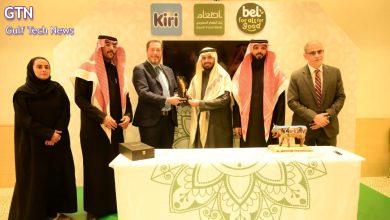Shows kids the value of data and analytics through sports

SAS, the leader in analytics, has created The Batting Lab, an interactive experience that uses artificial intelligence (AI), computer vision and Internet of Things (IoT) analytics to help kids improve their athletic skills, specifically baseball and softball swings, and their confidence in using data and analytics, a foundational element of data literacy.

The Batting Lab applies data science to sport activity to help kids better understand the use of stats. It makes data and analytics more accessible, relevant and fun. Boosting data literacy will help young people thrive in a world increasingly driven by data and analytics. In fact, the same technologies powering The Batting Lab help businesses and governments worldwide make better decisions and improve lives.
“SAS has long supported data literacy to help people navigate and thrive in a world awash in data. Data literacy has become an essential skill for success in today’s world and workplaces. We need to prepare future generations and excite them early on with applied statistics, so they can truly see the how statistics translates to activities they enjoy, like sports. This project is a showcase of how analytics can be used in baseball, but the similar principles can be applied in tracking performance in any other sport. We are witnessing every day how sport organizations – including academies – are increasing their efforts to transform themselves into data driven organization, understanding better their data sources (cameras, GPS & other IoT devices, etc.) and seeking those insights that would support their goals throughout the seasons. So, while kids learn how to use analytics effectively, thy also get introduced to the skills that they will need once they reach the time for a professional career of their choice, whether that is business, academic or any other field,” said Luca Spinelli, Director of Business Transformation, Emerging EMEA & ASEAN.
2022 is the perfect year to ensure our kids reflect on how athletes’ performance can be measured and how this then reflects into their teams’ results. With the Qatar 2022 World Cup is fast approaching, we shall surely use this great platform to educate our kids towards the link between data & performance. Most of the football federations participating into this great competition are using multiple solutions and analytics to aim at achieving excellence, and through that, victory.
The batting Lab is a great chance for the leaders of the future to understand the power of data analytics when it comes to solving “real life” problems. The current youth generation consumes an incredible amount of information/data on a daily basis, and this showcase will allow kids to early understand how to seek factual information to address any business question that will come their way in their professional career, being that sport related or not, continues Luca.
“Statistical competency is a requirement in so many fields now. I know that I would have no career in a baseball front office without an understanding of data and analytics,” said Sig Mejdal, Assistant General Manager for the Baltimore Orioles and a sabermetrics expert and former NASA engineer. “I can see that through The Batting Lab project, SAS seeks to inspire a new generation of data-savvy citizens who will work to solve many of our most pressing challenges with data and analytics. The project introduces skills that kids will need when they go pro … in business, engineering, medicine, government and so many other fields.”
Tech-laden batting cage and at-home playbook
The Batting Lab includes a tech-laden batting cage packed with sensors and cameras to capture a batter’s stance, swing, and ball-flight details. Through AI, computer vision and IoT analytics, stance and swing data are analyzed in real-time, and feedback and suggestions for improvement are shared via in-cage displays on its floor and walls.
The sensors and cameras of The Batting Lab collect 50,000 data points per swing. In a single session of 50 swings, that’s 2.5 million data points analyzed.
Batters will see how to optimize their weight distribution, hand position, core movements and other factors. The Batting Lab analyzed thousands of swings from elite players – including from North Carolina State University’s baseball and softball teams – to build a model of the optimal swing. It uses this to help guide youth hitters to a better swing.
While not everyone can experience The Batting Lab’s batting cage, everyone can benefit from the project. The Batting Lab offers an at-home Data Playbook, an online version of the program, where kids and their parents can use worksheets to track progress and receive guidance. As the kids improve their batting skills, they also gain confidence in using data and analytics to achieve their goals. The Data Playbook will be available on June 6.
The AI, computer vision and other advanced technologies in The Batting Lab cage and behind its Data Playbook guide are the same used by SAS customers everywhere.
“The Batting Lab makes data and analytics fun. Right off the bat, kids use data to improve their swings and stances,” said Lucy Kosturko, Education Programs Manager at SAS. “Our goal is that the kids in the batting cage and those working with the Data Playbook at home will be more comfortable applying data to solve problems, improve a skill, and understand their world.”
While The Batting Lab may improve kids’ hitting on the diamond, its most important outcome is to prepare them for the future by giving them the confidence to work with the data and analytics that run the world around us. This introduction to data and analytics and to the concept of data literacy is The Batting Lab’s true home run.
Through programs like The Batting Lab, as well as courses and free tools for educators, SAS is making data literacy accessible for all.




